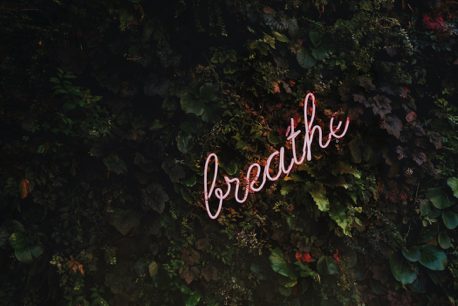One of our services at Agar is to support clients to ‘perform under pressure’; we help them to think about how they can reduce the pressure that they are under at work, while also increasing their ability to cope with the demands that they are under.
For many of us our New Year’s Resolutions will have centred around taking better care of our health and well-being, but our 1st January resolve might already be a distant memory! It is often one of the first priorities to be ‘dropped’ when we are put under stress.
We therefore felt that this would be an apt time to share with you our tips for improving your mental wellbeing, health, and ability to cope with stress through small, manageable actions which you can implement into your daily life. Why not chose a few that may be particularly beneficial for you, and put a date in your diary for a few months’ time to check up on how you are doing? If you would prefer us to put a date in our diary and drop you an email to see how things are going for you just get in touch and we will gladly oblige!
Reduce the amount of time you spend looking at emails
A plethora of research indicates that there is a direct correlation between stress and emails. The constantly increasing list of demands which you need to respond to can feel overwhelming and distract you from your main tasks. Prioritising your emails means that you are often working to other people’s priorities rather than your own, and this can prevent you from ending the day with a sense of achievement. We suggest that you set aside particular times in the day when you read and respond to emails, so that they are not a frequent source of distraction.
You could:
- Turn off email notifications so that you only see them when the time is suitable for you
- Set designated times in the day when you will read and respond to emails. Set an automated response during other times telling people what you are doing and that it is in the interests of productivity; they will respect and admire your decision.
- Encourage people to call or speak face to face if they have a more urgent enquiry
Identify your personal stressors
Our work with Insights shows that different ‘stressors’ can impact some individuals more than others. While those with a ‘blue’ preference may feel uncomfortable with a lack of structure or unnecessary distractions, a ‘yellow’ preference may cause an individual to feel more stressed by restrictions on their flexibility or a lack of variety in the workplace. Consider what your particular stressors may be and write down practical techniques that could help you to reduce these. For example:
- If you feel stressed by frequent distractions but are responsible for managing others, set aside some small chunks of time in the week when you wish to be able to work uninterrupted and communicate this to your team. Your pro-active approach to take care of your well-being will be a good example to the rest of your team
- If your team has Insights profiles, share them with each other to learn how everyone prefers to work and how to avoid putting unnecessary pressure on other colleagues
Set boundaries
The Quality of Working Life Report (2016) identified a move from a ‘long hours’ working culture to an ‘always on’ culture, particularly due to the ability to now be constantly connected to work through technology. However, protecting your personal time is important. If you are struggling to do so, you could…
Plan activities for the evening such as exercise or time with friends and family into your calendar so that you have to finish work on time; seeing it saved onto your calendar will also encourage others to appreciate your other commitments and interests
Keep a diary of the work that you complete during a typical week to review how you could have used your time more effectively, or to explore what is preventing you from completing all of your work within your set hours; perhaps there was simply too much to do, or a particular activity is taking up a larger amount of time than your manager had expected?
Practise Mindfulness
Mindfulness is the practise of paying attention to the present moment without judgement. This helps us to stand back from our thoughts and deal with them productively. It is recommended by the NHS as an activity that can improve your mental wellbeing and help you to deal better with stress and anxiety. To give it a try you could…
- Schedule in 10 minutes a day (perhaps at the very beginning of the day, or just before you go to sleep), to practise mindfulness
- Download an app to guide you through a mindfulness practice. Dee loves ‘Headspace’ and I definitely recommend ‘Calm’
Be altruistic
Research such as ‘Altruism, happiness and health: it’s good to be good’ has found a strong correlation between health and wellbeing, and people who are altruistic. Helping others can buffer negative emotions caused by stress, which may enable us to be more resilient when under pressure at work.
- Have a look at the Random Acts of Kindness website for inspiration about how you could behave altruistically today, it is full of lovely, interesting ideas
Express gratitude
Many of us tend to focus our thoughts on our sources of stress and anxiety when we are under pressure at work. However, pausing to think about the positive elements of your day before you go to sleep can be an effective way to challenge your mentality and avoid focusing on the negatives. If done regularly, your brain will begin to find it easier to identify the positives in situations and this may make you feel more resilient at work.
- Write a ‘gratitude’ journal before bed; make a list of at least three good things that happened that day; they can range from the larger things like time with your family to tiny things like your favourite song being played on the radio
- If you struggle to remember to keep the journal, try downloading the app ‘HappyFeed’ which reminds you to write in it every day
Disconnect… and relax
Disconnect from your smart phone at least an hour before you go to sleep. It will enable you to wind down without the constant overload of information from your phone; this is particularly important if your work emails are accessible via your smart phone. This will also stop you from looking at the blue light that is scientifically proven to hinder quality sleep
- Turn your phone off once you have finished using it for the day! We are living in a culture of never turning off our smart phones, but it will amaze you how much more relaxed you begin to feel when the temptation to keep checking the screen for new information is removed
- If you really struggle to disconnect, charge your smart phone in another room overnight and instead buy an alarm clock to wake you up in the morning; this will prevent you from using your phone when you should be sleeping and also stop it being the first thing which you look at in the morning
We hope that you find some of these useful!
Caroline Preston – Agar Management Consultancy


